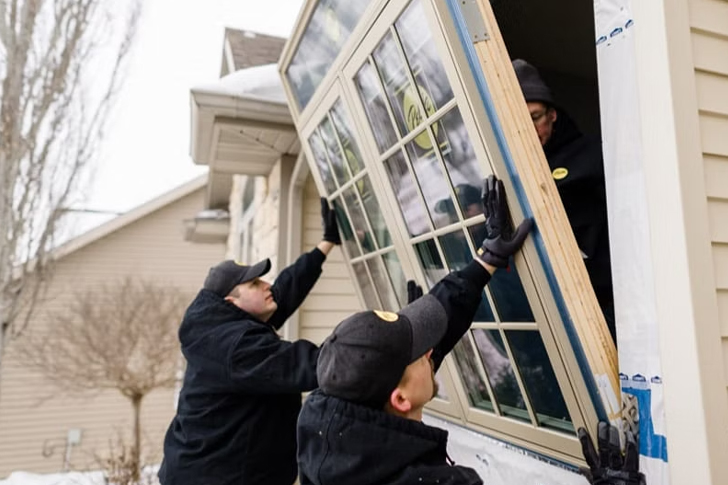For many seniors living on fixed incomes, maintaining a home can be financially challenging. One significant yet often necessary upgrade is window replacement, which can improve a home’s energy efficiency, reduce utility bills, and enhance comfort. Luckily, there are several financially supported options available for seniors who are considering this investment. This article explores these options and provides useful details to help seniors make informed decisions.

Understanding the Need for Window Replacement
Windows play a crucial role in regulating indoor temperature and light. Over time, windows may become less effective due to wear and tear, leading to drafts, higher energy bills, and increased noise from outside. Replacing old windows with energy-efficient models can significantly reduce heating and cooling costs. According to the U.S. Department of Energy, replacing single-pane windows with ENERGY STAR certified windows can save between $101 and $583 per year in energy costs, depending on your location and the specifics of your home.
Financial Assistance Programs for Seniors
Recognizing the importance of affordable housing repairs and upgrades for seniors, several financial assistance programs have been established by government bodies, nonprofits, and private organizations:
1. Weatherization Assistance Program (WAP)
Funded by the Department of Energy, the Weatherization Assistance Program helps low-income families, including seniors, to improve the energy efficiency of their homes. While the program is not exclusively for window replacement, it can cover such upgrades if they are deemed necessary during the home energy audit. Eligibility is based on income, and priority is often given to older adults and those with disabilities.
2. HOME Investment Partnerships Program
The HOME Investment Partnerships Program, administered by the U.S. Department of Housing and Urban Development (HUD), provides grants to states and local communities to create affordable housing for low-income residents. Under this program, funds may be used for home repairs and improvements, including window replacement. Seniors need to contact their local community housing development organizations to apply.
3. Area Agencies on Aging (AAA)
Area Agencies on Aging often provide resources and referrals for seniors looking for home improvement assistance, including funding for window replacements. These agencies can connect seniors with local grants or low-interest loan programs.
4. USDA Rural Repair and Rehabilitation Grants
For seniors living in rural areas, the U.S. Department of Agriculture offers the Rural Repair and Rehabilitation Grant. This program is designed to help very low-income elderly homeowners to repair and upgrade their homes. Grants can be used to modernize windows among other necessary modifications and repairs.
Utility Company Programs
Many utility companies offer rebates and incentives for energy-efficient home improvements. These programs often cover a portion of the cost of installing ENERGY STAR certified windows. Seniors can contact their local utility providers to find out what programs are available. Incentives can significantly reduce the cost burden and expedite the return on investment in energy savings.
Community Development Block Grant (CDBG) Program
The Community Development Block Grant program, also managed by HUD, allocates resources to local municipalities for community development projects including residential rehabilitation. Seniors can inquire at their city or county housing department about getting assistance through CDBG for window replacements.
Private Financial Assistance
In addition to governmental and utility assistance programs, private foundations and organizations sometimes offer grants and assistance for seniors needing home improvements. Organizations like Habitat for Humanity can provide resources or volunteer labor to help seniors manage the costs of significant home repairs, including window replacement.
Evaluating and Choosing Replacement Windows
When choosing replacement windows, it’s essential for seniors to consider not just the cost but also the quality and energy efficiency ratings. Windows with better insulation properties, such as double-glazed or triple-glazed windows with inert gas fill and low-E coatings, offer superior thermal performance and greater long-term savings. It’s also beneficial to look for products that meet or exceed ENERGY STAR standards to maximize energy efficiency and durability.
Conclusion
Window replacement can be a cost-effective way to enhance the comfort and efficiency of a senior’s home. Thanks to an array of financial assistance programs, it is also an accessible improvement for those on a limited budget. By taking advantage of these programs, and choosing the right products, seniors can enjoy the benefits of new windows without straining their finances. Always consult with a professional to get precise advice and services tailored to your specific needs and circumstances.


Recent Comments